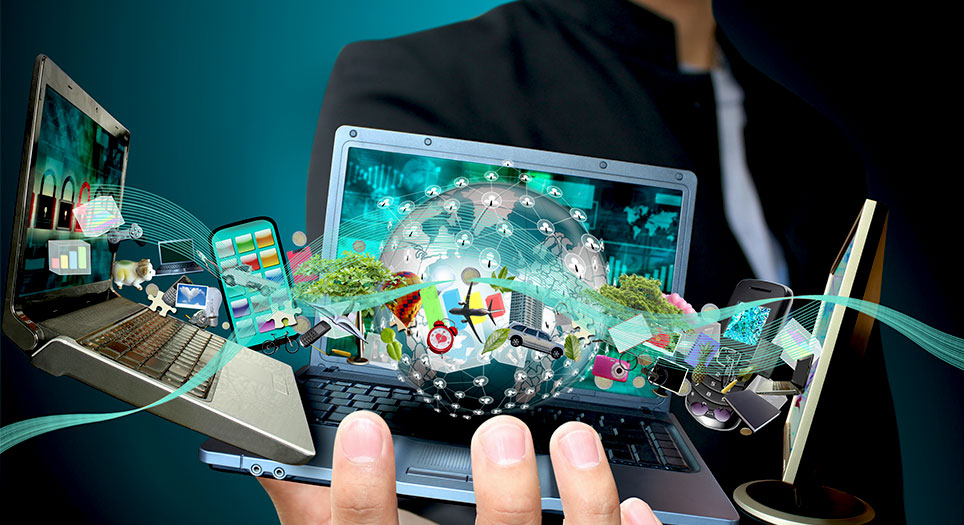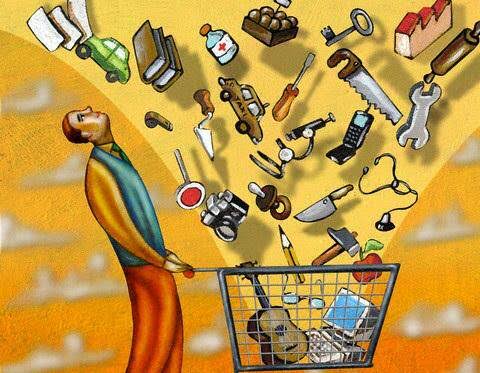I am not anti-technology or technophobic; on the contrary, I believe that fear of innovation is unhealthy and futile. However, I am also opposed to the glorification of technology that disregards the control of human beings and human values… These thoughts stem from my faith. I believe that Muslims must oppose the dominant academic ideology of our time—referred to as “post-human”—which is completely subjugated to technology.
(Note: This article draws on our book “The Internet and Our Psychology” [Kapı Publishing].)
When banks first emerged as simple intermediaries among those in need, no one realized that they were heralds of a new world order built on financial oligarchy. Nor was it easy to foresee that the developments—which gained incredible momentum with the invention of the computer, whose origins trace back to the printing press, the telephone, and the camera—were laying the foundations of a technomedia world. For some time now, we have been witnessing the construction of a completely new world—one we can no longer understand through old concepts and paradigms. Without deeply reflecting on this world, we cannot even begin to think about the effects of the internet—whose power has surpassed mere discovery and implementation through digital technologies to now shape our lives—on our psychology. The internet is just one of the core elements of the massive transformation that has taken place in our world over the past fifty years…
(The idea of the internet was first voiced in projects developed by the U.S. Department of Defense and several American universities in the 1960s, a time when the Cold War had begun to slow down. The aim was to enable communication and message transmission between two points. In 1989—the year widely considered the end of the Cold War, marked by the fall of the Berlin Wall—the idea of the internet shifted into the civilian domain. In 1991, the term “World Wide Web” (www) was defined, enabling access to internet pages from anywhere in the world and marking the first major leap toward today’s developments. The internet came to Turkey in April 1993, initially within METU and on a limited scale. In the short time since, we have begun to discuss and experience e-government, smart homes, smart cities, and networks and systems beyond the scope of our imagination.)
Engineering sciences, information technologies, and biotechnology were advancing at such a rapid pace that the knowledge produced in psychological and human sciences was quickly becoming obsolete—and even laughable. For example, developments in psychological science and theories of human relations soon fell out of step with the times, not merely because they ignored computers, but because they failed to even take communication tools like radio and television into account. As for the humanities, they had already long abandoned their mission of seeking valid and reliable knowledge under the banner of so-called “postmodern” and “poststructuralist” thought.
Where is all this leading?
The developments in engineering, information technology, and biotechnology have reached a point where some claim that the fundamental traits of the human species have been surpassed—that the old notion of “the human,” along with the discourse of humanity built around it, has come to an end. None of the utopias we dreamed of throughout modern times has come to pass. Instead of the expected “brave” new world, a “savage” new world has emerged—one in which people no longer speak of the “human,” but rather of transhumanism and posthumanism. Savage means bloodthirsty; I use this word deliberately. If the problem were only developments in information technology and the internet, I might not use such a strong term. But when I consider everything together, I cannot help but feel anxious.
We have already come to understand just how ineffective concepts like “human rights” and “democracy” are in this savage new world—how those in power will employ every possible means to protect their interests, and how, instead of fighting one another directly, they will wage proxy wars. We are now almost certain that, at this rate, global injustice and the chasm-like inequalities between the wealthy North and the impoverished South will only grow worse. One fact we must recognize is that the definitions of “human” and “society” in the technomedia world will also be completely different; everything—including our communication, relationships, understanding, and perceptions—will change. Our only way to intervene in this savage new world is in the name of protecting ourselves and our society. Only after understanding what is truly happening can we voice our objections and present the alternatives that will cultivate our hope. For now, hope is just a seed—but we are also responsible for nurturing it and standing firm in the face of this savagery.
We must set aside debates about the “old” and take our place in the discussions on posthumanism and transhumanism without delay. For militant materialism—the foundation of a new, aggressive secular identity that is fundamentally opposed to belief—now draws much of its fuel from these very fields, and it is rapidly spreading to become the dominant ideology of the technomedia world. A constructive intervention is urgently needed in this technomedia world on behalf of spirituality, tradition, and the human legacy, which are the sources of peace, serenity, and conscience.
There is no escaping innovation or technology, and trying to dismiss it by labeling it a “disease” and calling it “addiction” is a ridiculous and childish effort. We must strive to understand what is happening, to focus on what we can do to uphold our values, on what we can offer as alternatives, and on the responsibilities that fall upon us to transform evil into good.
Wholesale approaches are harmful.
We are well aware of how information technologies have brought about massive transformations in fields ranging from medicine to architecture, urban planning to archiving, production processes to sales and marketing, the arms industry to automotive, and librarianship to intelligence. Even if we set all that aside and focus only on our daily lives, we are faced with a panorama so astonishing it nearly leaves us speechless. With each passing day, a digital network grows more indispensable—one in which our hands feel tied without access, and our smartphones have become our most essential possessions. Thanks to the internet, we handle countless tasks with ease, swept away by the magic of speed, exclaiming with admiration, “Wow!” The internet is rapidly becoming the first choice for shopping, banking, hospital appointments, and travel arrangements. Media—reading newspapers, magazines, and books; watching television; chatting; playing games; having fun; even doing homework, listening to lectures, checking exam results, and communicating—has long since become indispensable.
This digitalization of life, with virtuality increasingly replacing reality day by day, is also stripping our language of its nature as “language.” Instead of volumes of books, we now find ourselves drawn to the chitchat of social media. When we say “go somewhere,” “browse,” “travel,” or “surf”; “sites,” “pages,” “addresses,” “settlements,” “worlds,” “rooms,” “spaces”—we now mean things entirely different from what we did twenty years ago. And let’s not even get into the words we’ve only just begun to use—like “blog,” “emoji”—or why we now say “real-time” instead of “live broadcast”…
Are all these things bad? Absolutely not. We cannot, and should not, take a wholesale approach and simply say “yes” or “no.” It would be ungrateful to deny the conveniences and benefits that all these changes have brought into our lives. But refusing to take a critical stance on what is happening—just so we don’t seem ungrateful to technology—would be a betrayal of ourselves, our beliefs, our values, and our humanity. Besides, many things that appear unquestionably beneficial may, in fact, carry harms, side effects, and complications that we are not yet able to perceive. For example, the problems we experience with online communication have already driven us to frustration. A cybersecurity unit has been established to combat cybercrime, but it is not enough; what we need is a new ethical framework and new laws for the cyber realm. Internet-based relationships are very different from previous forms of human interaction. We are novices in this new world—we don’t know how things will turn out, and we are fumbling our way forward in the dark.
While experts remain occupied with questions like how to cure children of internet addiction or what kinds of restrictions to impose, we are increasingly becoming people from completely different worlds than our children. Because our children are not novices in this new world as we are—they are born directly into it. Once, a person was born into their mother’s arms, into a language, into a tradition. Today’s children are also born into digital technology. Digitality is almost like a mother tongue to them, while for us, it is a foreign language we are still trying to learn—stammering as we go. That is why the relevant literature refers to our children as “digital natives” and to us as “digital immigrants.”
You’re still with me, right? I keep speaking this way instead of resorting to rhetoric or grandstanding—I hope you don’t mind. As an unfamiliar world crashes down on us like an avalanche, there is no safer harbor than to keep our senses alert, and to think, doubt, and question. This is the surest way to transform anxiety into hope.
I am not a technophobe or anti-technology; on the contrary, I believe that fear of innovation is unhealthy and futile. But I am also against the glorification of technology that disregards human agency and values… These thoughts stem from my faith:
“Indeed, We have honored the children of Adam. We carried them on land and sea, provided them with good sustenance, and favored them above many of those We created.” (Isra, 17:70)
To be honored means to rule the earth as Allah’s vicegerent (al-Baqarah, 2:30); to exist for the purpose of cultivating the earth (Hud, 11:61). It means to be a being created by the hand of God (Sad, 38:75). It means bearing the heavy burden that neither the heavens nor the earth could bear, and carrying the divine trust (Ahzab, 33:72). It means that everything in the heavens and the earth has been given to humankind as a divine mercy, and made subservient to them (Jathiyah, 45:13). It means attaining the secret of ahsani taqwīm—the best of forms (Tin, 95:4). It means to be the being whom Allah created from the earth and honored by breathing into from His spirit (Hijr, 15:29; Sajda, 32:9).
I believe that Muslims whose thinking is nourished by these divine inspirations must oppose the ideology referred to as “post-human”—a school of thought that has become dominant in today’s academia and is fully subjugated to technology. Unfortunately, Jürgen Habermas, who sided with the perpetrators of genocide during the atrocities in Gaza, discusses in his work The Future of Human Nature how today’s biotechnological and genetic developments may affect the future of human nature. In my view, Muslim thinkers must engage with the subjects Habermas addresses in this book and strive to respond to the questions he raises.






